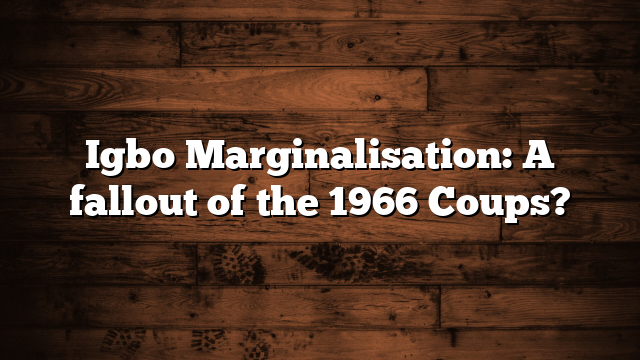In the early hours of 15th January, 1966, a group of young army officers, mostly from the Igbo ethnic group, led what is now known as the First Military Coup in Nigeria. The coup was aimed at overthrowing the civilian government headed by Prime Minister, Sir Abubakar Tafawa Balewa, whom the plotters accused of corruption, nepotism, and incompetence.
The coup resulted in the deaths of several high-ranking politicians and military officers, including Prime Minister Balewa – Premier of the Northern Region, Sir Ahmadu Bello – Premier of the Western Region, Chief Samuel Akintola – Finance Minister, Festus Okotie-Eboh and Brigadier Samuel Adesujo Ademulegun, who was killed in bed with his wife by Major Timothy Onwuatuegwu. The coup leaders, under the leadership of Major Chukwuma Kaduna Nzeogwu, announced the establishment of a military government to “purge Nigeria of corruption and to restore dignity to the Nigerian people.”
The coup plotters attacked the cities of Kaduna, Ibadan, and Lagos while also blockading the Niger and Benue River within a two-day span of time before they were subdued. The General Officer Commanding the Nigerian Army, Johnson Aguiyi-Ironsi, was compelled to take control of the government of a country in upheaval, inadvertently putting Nigeria’s nascent democracy on hold.
Aguiyi-Ironsi’s ascendancy to power was, however, deemed a conspiracy by the coup plotters who were mainly Igbo officers, to pave the way for him to be Head of State of Nigeria. Aguiyi-Ironsi was of Igbo extraction too.
Consequently, the retaliatory events by Northern members of the Nigerian Army that led to deaths of many innocent Igbo soldiers and civilians, which eventually led the Nigerian Civil War.
The 1966 Nigerian counter-coup, or the so-called “July Rematch”, was the second of many military coups in Nigeria. It was masterminded by Lt. Colonel Murtala Muhammed and many northern military officers including Major Theophilus Danjuma, Captain Joseph Garba, Captain Ibrahim Taiwo, Lieutenant Muhammadu Buhari, Lieutenant Ibrahim Babangida, Lieutenant Ibrahim Bako, Lieutenant Mamman Vatsa, Lieutenant Buka Suka Dimka, Second Lieutenant Sani Abacha, Second Lieutenant Muhammadu Gado Nasko and Corporal John Shagaya.
The coup began as a mutiny at roughly midnight on 28 July 1966 and was a reaction to the killings of Northern politicians and Officers soldiers of mostly igbo extraction on 15 January 1966.
The July counter coup resulted in the murder of Nigeria’s first military Head of State, General Johnson Aguiyi-Ironsi and Lieutenant Colonel Adekunle Fajuyi, the Military Governor of Western Nigeria (who was hosting a visiting Aguiyi-Ironsi) in Ibadan.
At 4 am, soldiers, led by Theophilus Danjuma and Joseph Garba, drove into Government House, Agodi, Ibadan. Their mission was to kidnap and kill Ironsi. The gentleman officer in Fajuyi, however, took over. He refused to allow his Commanding Officer to be killed under his roof. He felt it would give rise to Yoruba, Igbo suspicion and everlasting hatred, woven into a conspiratory theory. Unfortunately, he paid the supreme price for his courage.
Upon the termination of Ironsi’s government, the coupists installed Lieutenant Colonel Yakubu Gowon, a northern officer, as the head of state.
The 1966 Nigerian coup and counter-coup were two significant events that shaped the country’s history. The coups had far-reaching consequences on Nigeria’s politics, economy, and social fabric, and their legacy is still felt today. The events of the coups serve as a reminder of the dangers of ethnic and religious tensions in a diverse society and the importance of building institutions that can withstand political instability and violence.

